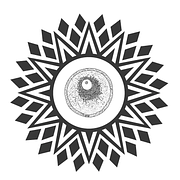The Art of Prediction
Excerpted from the book Astrology Is Real

People who blindly despise and deride astrology may assert that consulting a horoscope column or getting a reading from a professional astrologer is an unsound approach to making judicious decisions about one’s life.
The haters never follow up that assurance with a detailed revelation of what ARE valid ways to gather the data and insights and ideas for making judicious decisions about one’s life.
Do they know of a Bureau of Acceptable Life Information that can help us determine what is and what is not worth considering as we chart the course of our destiny?
I don’t mean to be glib. I am honestly puzzled by the apparent certainty that there are unambiguous methods.
Would the astrology haters approve of the guidance and inspiration we have gleaned from our high school teachers? From our parents and relatives? From our friends and colleagues? None of them are entirely reliable narrators. They are not to be trusted to deliver 100% accurate and wise counsel on how best to conduct our lives.
And how about the lyrics of Missy Elliott, and the poetry of Nobel Prize-winner Louise Glück, and the movies of Akira Kurosawa? Is it a brilliant move for us to eagerly take on influences from them, allowing their art to infiltrate our subconscious minds and skew and shift our attitudes? Or might we make foolish moves and bad decisions if we regard them as unfailing sources of smart guidance?
Or how about the philosophy of the Upanishads or Georg Wilhelm Friedrich Hegel or Susan Sontag? Or the psychological ideas of Carl Jung or Clarissa Pinkola Estés or Erik Erikson? Or the writing of Joan Didion or Pema Chödrön or Ta-Nehisi Coates? Or the social science of Malcolm Gladwell? Or the economic theories of Paul Krugman?
Are they all foolproof, unimpeachable sources of sage tutelage that we can unconditionally rely on to steer our personal lives in a righteous direction?
Or should we be ruthlessly careful to draw our direction and inspiration only from paragons of rationalism and science?
Should our night tables be stacked with books by Stephen Hawking and Charles Darwin and chess grandmaster Garry Kasparov and mathematician Terence Tao?
Should we read passages from their teachings every night in the expectation that they will shape us into paragons of reason and science? That they will unfailingly lead us to make prudent decisions about how to live?
I don’t think so. It’s fine if those tomes and others like it constitute a part of our own personal Bureau of Acceptable Life Information. But we need to get education from a variety of other sources, as well—each of which, like Hawking and Darwin and Kasparov and Tao, is imperfect and incomplete.
It’s perfectly sensible to look to astrology as one of our sources, because astrology is a branch of psychology, as well as an art form—a mode of storytelling.
It’s designed to stimulate our imaginations as we ruminate on what it means to be a human.
It’s an evocative mythopoetic system that helps us identify and transform our subconscious patterns and have fun speculating about the big picture of our destinies.
+
Self-anointed “debunkers” rail against astrologers’ predictions, acting as if speculating about the future is a crime against levelheaded thought.
Meanwhile, economists, meteorologists, sportscasters, trend analysts, and political pundits are out there regularly making bad prognostications based on dubious data.
They spread far more delusions and cost people more money than those of us who divine cosmic omens. In the case of errant weather forecasts, they can even be responsible for the deaths of people who are in the paths of extreme events.
Cliff Mass, a meteorologist and professor of atmospheric sciences, analyzed how badly the National Hurricane Center botched its forecasts for Hurricane Patricia in 2015 and Hurricane Matthew in 2016. Mass presented his critiques as evidence of a systemic pattern of incompetence by official sources.
Matthew killed 603 people. Has any astrological prognostication been as lethal?
On the other hand, there are documented examples of astrologers preventing lethal disasters. In 1226, Mongol astrologer Yelu Chucai saved over 100,000 lives. His boss, Genghis Khan, had ordered a massacre of the Tangut people, but the sage insisted that a heavenly sign—a colossal planetary conjunction in Capricorn—was a clear omen not to proceed with the plan. Amazingly, Khan agreed.
+
How about doctors? Are they skilled at offering forecasts? Systematic research addressing one aspect of this subject appeared in PLOS One, a peer-reviewed, open-access scientific journal.
The report studied the accuracy of physicians who give predictions to terminally ill patients about how long they will live. That information can be crucial for families as well as the patients. How will they spend their final days? How much time is there to do all they want to do before they die?
The research included 42 studies covering 30 years of research and over 12,000 prognostic estimates. Its conclusion: “Clinicians’ predictions are frequently inaccurate.” See the study.
+
As for predicting financial futures, public finance journalist Liza Farmer wrote an article with a headline that sums up a consensus: “Why Economists’ Predictions Are Usually Wrong.”
Read it here.
Writing in The Guardian, journalist Adam Shaw added another nuance, discussing “Why Economic Forecasting Has Always Been a Flawed Science.” Read it.
Macroeconomist Prakash Loungani of the International Monetary Fund found that his fellow economists whiffed on predicting 148 out of 150 recessions. “The record of failure to predict recessions is virtually unblemished,” he said. Read it.
Why economists get so many of their predictions wrong.
Why economists can’t forecast.
Why economic models are always wrong.
Shall I hazard a guess about how many human lives have been misdirected and damaged, sometimes catastrophically, by the erroneous advice of financial forecasters?
Now excuse me while I go read Nobel Prize-winning James M. Buchanan’s book, Economics: Between Predictive Science and Moral Philosophy

Prayer for Us
Pronoia therapy
Prayer Warriors Standing By
Listen to Rob's Expanded Audio horoscopes, updated weekly.
Pronoia therapy
Prayer Warriors Standing By
Listen to Rob's Expanded Audio horoscopes, updated weekly.

